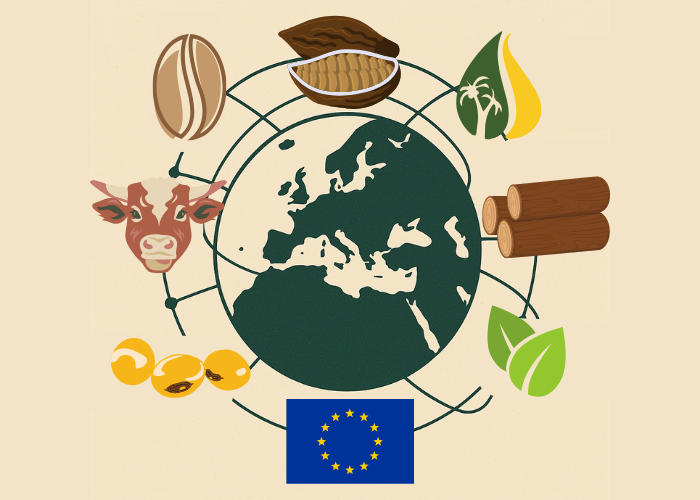EUDR: Our Companies Cannot WaitBY PIETRO PAGANINI
- 1 April 2025
- Posted by: Competere
- Categories: highlights, News, Sustainable Oils & Fats

To innovate and remain competitive, Italian businesses need clear rules and certainty in timing. That is why, during a hearing at the XIV EU Policies Committee of the Chamber of Deputies, I urged Parliament to promptly adopt the European Union Deforestation Regulation (EUDR). Across Europe, businesses are already preparing—testing new criteria and equipping themselves to meet deadlines. The December 30, 2025, deadline is approaching fast. Time is running out for Italy, too.
SUSTAINABILITY AND CHALLENGES FOR BUSINESSES
The EUDR aims for an ambitious goal: eliminating global deforestation by 2030 by banning seven key commodities—cattle, cocoa, coffee, palm oil, rubber, soy, and wood—from the EU market if linked to unsustainable practices. The regulation came into force in June 2023 but was immediately postponed by a year by the European Commission itself, recognizing the lack of clear guidelines for businesses and stakeholders.
The principle is sound, but without pragmatic implementation, it risks becoming a bureaucratic burden that weighs on European businesses and harms producer countries.
We have repeatedly highlighted the limits of a top-down, one-size-fits-all approach imposed on vastly different sectors without genuine consultation with those who produce these goods.
The issue is not just technical but also geopolitical: Europe cannot jeopardize vital trade relations that are crucial for food security and strategic autonomy.
For the EUDR to be truly effective, a gradual and balanced approach is needed—one that protects forests without sacrificing innovation and competitiveness.
WHY ACT NOW?
To protect and support our businesses, Italy must adopt the EUDR immediately, test its impact, and directly involve the sectors concerned.
The risk is real: delays in implementation are already penalizing Italian companies, while in other countries—such as the Netherlands—institutions and businesses have been collaborating for months to turn the regulation into an opportunity for innovation and growth. We cannot afford to fall behind.
OUR PROPOSALS
To make the EUDR truly applicable and sustainable, concrete and coordinated actions are needed. We propose three key measures:
- Sector-specific working groups, coordinated by the competent authority and including businesses, trade associations, NGOs, and representatives from producer countries.
- Operational tests along supply chains to identify and resolve issues before the regulation comes into effect. The competent authority must act in synergy with all involved stakeholders.
- Strategic partnerships with producer countries to simplify compliance and position Italy as a preferred hub for sustainable imports.
THE PALM OIL LESSON
The case of palm oil proves that well-applied regulations work. After years of pressure and media attention, producer countries have adopted some of the most advanced environmental standards in the world. Today, over 95% of the palm oil imported into Italy is certified “deforestation-free”, thanks to targeted policies implemented in Indonesia, Malaysia, and Guatemala. The results speak for themselves! Between 2015 and 2022:
- Indonesia: -67% deforestation;
- Malaysia: -57%;
- Guatemala:-81%.
FROM REGULATION TO IMPLEMENTATION
The EUDR is both a challenge and a strategic opportunity. A proactive approach is essential: engaging stakeholders, launching technical working groups, and conducting real-world trials. Italy must act now, move from theory to practice, and turn this regulation into a driver of sustainable growth.
